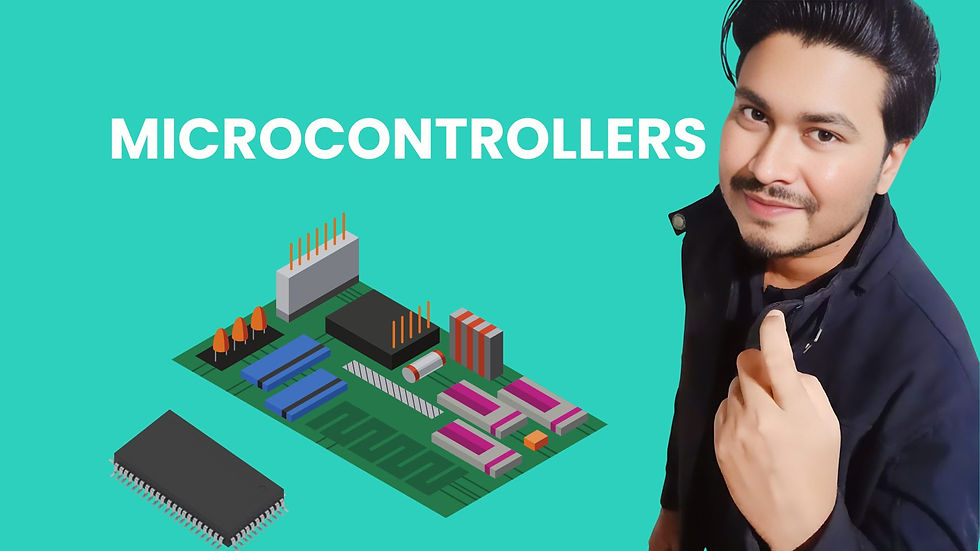
What is a Microcontroller?
At its core, a microcontroller is a small yet mighty integrated circuit that acts as the brain of a mechatronic system. It's like the conductor of an orchestra, orchestrating various components to work harmoniously. Microcontrollers are found in an array of devices, from everyday appliances to sophisticated robotics.
Real-World Examples:
Let's take a moment to appreciate the real-world impact of microcontrollers. Your morning routine probably involves interacting with them more than you realize. The alarm clock that wakes you up, the coffee maker that brews your favorite blend, and even the thermostat regulating your home's temperature—all powered by microcontrollers.
In industrial settings, microcontrollers play a pivotal role in automated manufacturing processes. Robots welding car parts on an assembly line, drones mapping terrain, and smart irrigation systems optimizing water usage—all rely on the precision and efficiency of microcontrollers.
Tips for Harnessing the Power of Microcontrollers:
1. Understand the Basics:
Before embarking on a mechatronics project, grasp the fundamentals of microcontrollers. Learn about inputs, outputs, and how to program these tiny powerhouses.
2. Choose the Right Microcontroller:
Not all microcontrollers are created equal. Select one that aligns with your project's requirements. Consider factors like processing speed, memory, and input/output capabilities.
3. Master Programming Languages:
Coding is the language of microcontrollers. Familiarize yourself with popular programming languages such as C, C++, or Python, depending on the microcontroller you choose.
4. Experiment with Prototyping:
Start small by prototyping your ideas. Use development boards like Arduino or Raspberry Pi to test and refine your concepts before diving into the full-scale implementation.
5. Embrace Sensor Integration:
Microcontrollers thrive on data. Integrate sensors into your projects to gather real-time information, enhancing the capabilities and responsiveness of your mechatronic systems.
6. Documentation is Key:
Keep detailed records of your projects. Documenting your code, wiring diagrams, and any troubleshooting steps will be invaluable as you tackle more complex endeavors.
7. Join the Community:
The beauty of mechatronics lies in its collaborative nature. Engage with online forums, attend meetups, and participate in the vibrant community of makers and engineers. Sharing experiences and seeking advice can accelerate your learning journey.
Conclusion:
As you embark on your mechatronics journey, remember to embrace the learning process, experiment with passion, and celebrate the incredible possibilities that microcontrollers unlock. The Mechatronics Forum is here to support your exploration of this captivating realm, where technology meets imagination. Happy tinkering!
